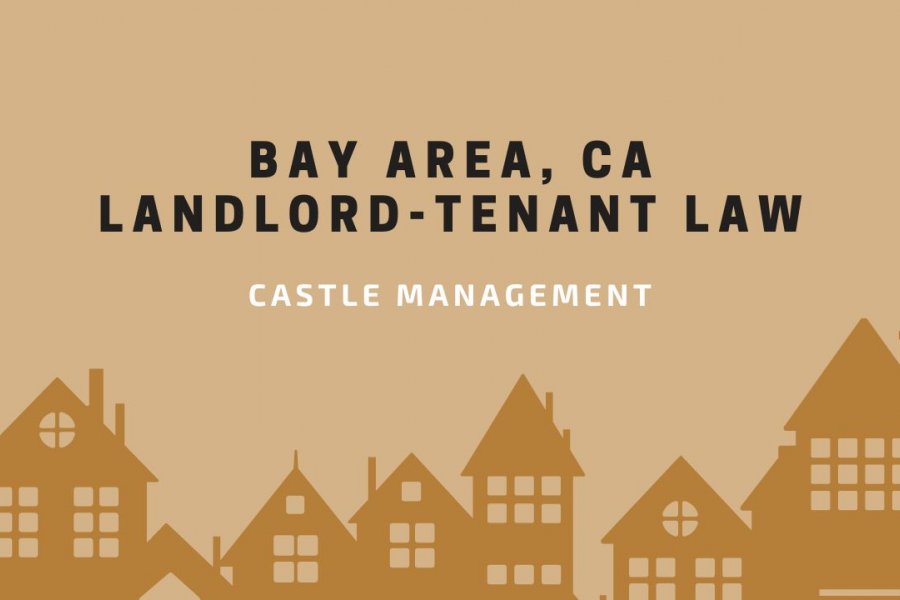
As a landlord in California, you should always be aware of the rights and responsibilities of both you and your tenants. Rules and Regulations can vary from state to state, so knowing the laws specific to California is crucial for you and your business.
If you’ve ever wondered about California landlord-tenant laws, keep reading for a comprehensive overview of your legal rights and responsibilities, as well as local regulations in the state of California.
California Tenant Rights and Responsibilities
In California, each tenant has their own set of rights and responsibilities. The following are the legal rights of a California tenant:
- The right to live in a habitable environment.
- The right to remain in the home until there has been a legal eviction process with proper notice.
Your California resident has the legal responsibility to:
- Pay rent for the duration of the lease agreement within the notice period for nonpayment of rent.
- Keep the unit in a clean and sanitary condition during their tenancy.
- Keep fixtures clean.
- Use the unit for its intended purpose only.
- Make small repairs when necessary and provide the landlord with notice when larger repairs are needed.
- Refrain from disturbing neighbors and other tenants.
California Landlord Rights and Responsibilities
Just like a tenant, California landlords have a set of legal rules and responsibilities. The legal rights of a landlord are:
- To collect rent as specified in the rental agreement.
- To collect payment to cover any repairs needed due to damages that exceed normal wear and tear.
- To raise rent in accordance with the relevant rent control regulations with the required notice.

In California, the landlord's legal responsibilities are as follows:
- Provide a habitable home.
- Hold each prospective tenant to the same standards during the application process, as per the state and Federal Fair Housing Act.
- Follow the California eviction process legally, including giving proper eviction notice to tenants. Rules may vary for month-to-month tenancy.
- Respond to any maintenance notices from a tenant in a reasonable amount of time.
An Overview of the Laws in California
Now that you understand your and your tenant's legal rights and responsibilities when it comes to renting a space, it’s time to learn about all the other aspects of the laws in California.
A Tenant’s Right to Privacy
Prior to entering the home, California landlords must provide their tenant with at least 24 hours' written notice. However, in an emergency situation, a landlord may enter the dwelling without written notice.
Condition, Maintenance, and Repairs
As a landlord, you know that it is ultimately your responsibility to ensure that your rental unit remains habitable and safe for your tenant. But what is included in this responsibility? According to California law, here are the amenities that must be provided to your tenant:
- A stable and safe dwelling structure.
- Functioning windows and doors.
- Running water.
- HVAC equipment.
- Functioning gas lines and fixtures.
- Plumbing and sanitation.
- Trash cans and removal.
- Safe and stable stairs and railings.
- Fire exits.
- Working smoke detectors.
- A lock-protected mailbox.
- Phone jack wiring.
- Disclosures of any hazardous materials.
- Removal of any mold.
- Removal of bed bugs.
If a landlord fails to provide the services and amenities listed above, the unit may be considered uninhabitable and a California tenant may be allowed to break their lease early. The maintenance responsibilities of both the California tenant and landlord should be clearly stated in the rental agreement to avoid disputes.

Housing Discrimination Laws in California
According to the Federal Fair Housing Act, discrimination against anyone based on race, color, sex, religion, national origin, familial status, or disability is prohibited. California, however, extends this protection to other groups as well.
Under California law, it is illegal to discriminate against anyone on the basis of ancestry, citizenship status, primary language, mental disability, gender identity or expression, immigration status, marital status, military or veteran status, sexual orientation, or source of income.
Breaking California fair housing laws can result in tangible consequences for any landlord.
California Security Deposit Laws
Many states have their own rules when it comes to security deposits. California security deposit law states that the maximum legal amount that a tenant may be charged for a security deposit is two months' rent or three months' rent if it is a furnished rental. A landlord may use the security deposit to pay for the following things related to the rental unit:
- The security deposit can be used to cover unpaid rent.
- Cleaning costs.
- Repairs for any damages caused by the tenant that exceed normal wear and tear.
- Any costs related to restoring the rental to its original state.
Renters’ Right to Withhold Rent
California allows tenants to not pay rent if a landlord fails to make necessary repairs to the rental after they have been requested. The Repair and Deduct Remedy means that they can also make the repairs themselves and deduct the cost from future rent payments with notice, as long as the cost of repairs does not exceed one month's rent.

Small Claims Courts in California
Sometimes California landlords and tenants must deal with legal conflicts that end up being handled in small claims court. In California, a small claims court will hear any rent-related cases, including security deposit disputes, up to $10,000.
Required Landlord Disclosures
Under California laws, there are certain disclosures that must be provided to a tenant whether entering into a long-term lease or a month-to-month tenancy. These notices should be in writing and will usually be printed in the lease or rental agreement.
The following is a list of disclosures that a landlord must provide to their tenant in the lease or rental agreement:
- Lead-based paint: If the home was built prior to 1978, then information must be provided to the tenant about possible concentrations of lead paint.
- Bed bugs: Owners must provide information on bed bugs and how to report it if a problem arises.
- Mold: Any documentation of known mold presence must be provided.
- Utilities: California landlords must disclose how any utility fees will be divided between tenants and how they must be paid.
- Asbestos presence: Any building built prior to 1978 applies to this disclosure.
- Meth and fentanyl: This disclosure is required if the landlord has any knowledge of potential drug contamination and remediation has not been completed.
- Sex offender registry: Prospective tenants have the right to access information provided by the sex offender registry.

- Demolition permit: Notice of any plans to demolish or repurpose the building in a way that will affect the tenancy must be disclosed.
- Military ordinance: This is applicable to any rental building that is located within one mile of a known ordinance location.
- Death: Tenants must be given notice of any death that has occurred in the last three years.
- Pest control: If pesticides have been used in the rental units, this must be disclosed to the tenant.
- Flood zone: Tenants must be aware if the building is in a known flood zone.
- Smoking policy: Any landlord wishing to impose a smoking policy must inform the tenant.
Bottom Line
Now you know a bit more about legal requirements for landlords in California. If you have any further questions or need help with any aspect of renting out properties, don’t hesitate to call our reputable and professional team here at Castle Management!
Disclaimer: This blog should not be used as a substitute for legal advice from a licensed attorney in your state. Laws change, and this post might not be updated at the time of your reading. Please contact us for any questions you have in regards to this content or any other aspect of your property management needs.
